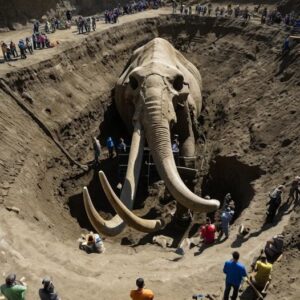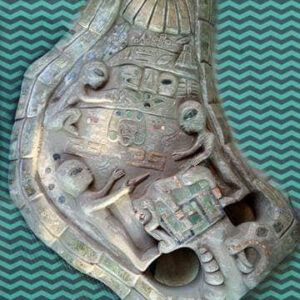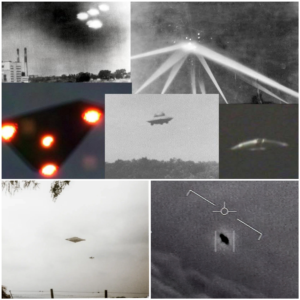
The skeleton, found in a layer of sediment buried deep beneath the desert sands, has unique characteristics. Although at first glance it resembles some of the best-known carnivores of the time, such as the Velociraptor or the Allosaurus, its proportions and anatomical details indicate that it could belong to a completely new species. Its sharp skull, equipped with extremely pointed teeth, suggests that this predator was perfectly adapted to hunting in its environment.

What makes this discovery even more intriguing is its relatively small size. Compared to giants like Tyrannosaurus rex, this dinosaur appears to have been an agile hunter, possibly acting in packs to capture larger prey. Its long limbs and robust tail indicate an ability to run at high speed, while its sharp claws would have been deadly tools in the hunt.
The Gobi Desert, known as a prolific place for the discovery of dinosaur fossils, was once a fertile region with forests and rivers during the Jurassic period. Paleontologists believe this dinosaur lived in an ecosystem rich in biodiversity, where it likely competed with other predators for dominance.

The discovery raises fascinating questions about the evolution of predators during the Jurassic. Was this dinosaur part of an evolutionary branch that failed to survive the passage of the ages? Or could it be an ancestor of some of the best-known predators of the Cretaceous period? Researchers are now working on a detailed analysis of the bones, using modern techniques such as CT scanning and isotope analysis to gain a more complete picture of its biology and environment.
As studies progress, this discovery could not only redefine our understanding of Jurassic dinosaurs, but also provide key clues about how these animals adapted to their environment and competed for survival. Paleontologists hope this skeleton will inspire new expeditions to the Gobi Desert, where more buried secrets could be waiting.

The world is eager to find out what this enigmatic skeleton will reveal. For now, the only thing that is clear is that the history of life on our planet still holds countless surprises, and each discovery brings us a little closer to understanding the mysteries of the giants of the past.






